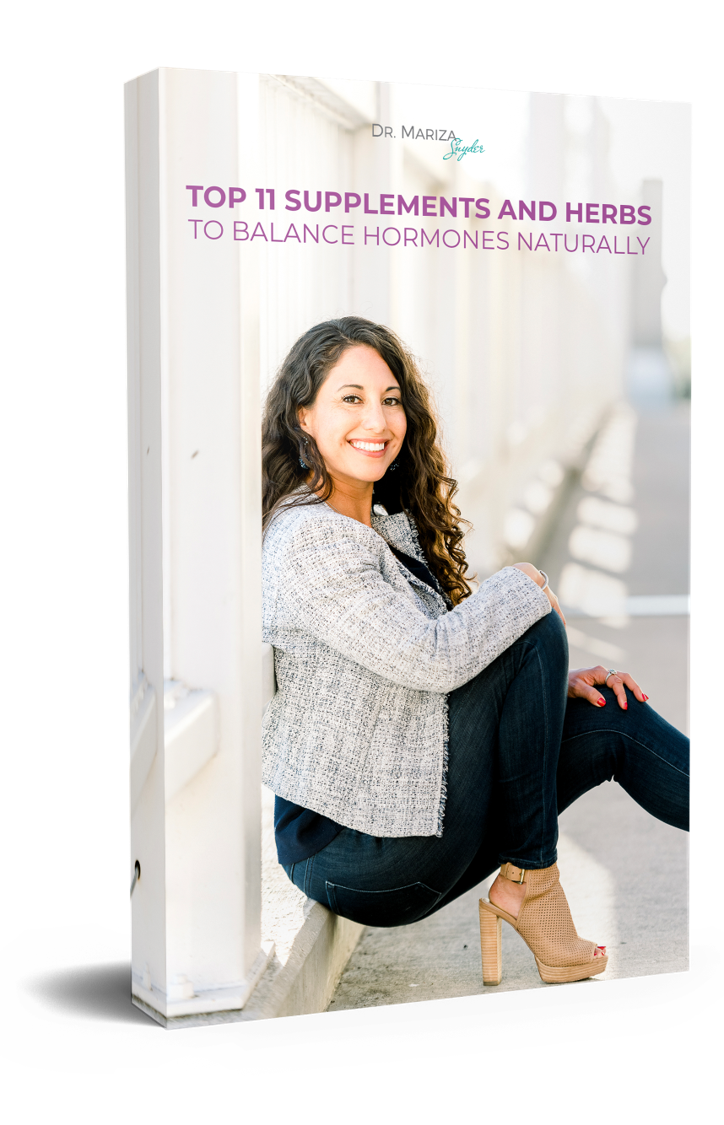
Skin Care Ingredient Red Flags — What to Avoid and Why
The skincare industry is full of products that promise miracles but can sabotage your skin. This becomes especially important for aging skin, including those navigating perimenopause and menopause—periods marked by hormonal fluctuations that may heighten skin sensitivity and compromise resilience. During this time, using the wrong ingredients can worsen a number of age-related skin issues.
Luckily, science suggests using certain ingredients can make all the difference in slowing or even reversing the visible and invisible signs of skin aging.
How to Read a Skincare Label Like a Pro
Reading a skincare label can feel like learning a new language with ingredients you might not always recognize. Whilst many of these are simply scientific names for more common compounds that are completely safe, learning how to identify some of the best and worst ingredients helps put the health of your skin first.
What Skin Care Ingredients Should You Avoid?
Not all skincare is created equal. While many products claim to be “clean” or “natural,” a closer look at their ingredient lists often reveals a different story with formulas that contain endocrine disruptors, weaken the skin barrier and trigger irritation. While the complete list of potentially unsafe ingredients is far too long to include, here are some examples of commonly used ingredients that may be harmful to your skin:
Fragrance
Skin care with fragrance can smell nice. But it could also mean a mix of dozens (or even hundreds) of chemicals, including endocrine disruptors and irritants. Depending on your sensitivity to these fragrances, they can be allergenic, irritating, and toxic to the health of your skin.
Colorant
Some skin care companies use artificial colors to change the appearance of their products. Unlike products dyed naturally by active ingredients, artificial colors can sometimes be derived from petroleum and potentially contaminated with heavy metals. Since they don’t offer any skincare benefits and can lead to irritation, particularly in aging or sensitive skin, products containing unsafe colorants should be avoided.
Parabens
Parabens are preservatives that extend product shelf life but can also mimic estrogen in the body, disrupting hormonal balance. Research suggests that parabens can accumulate in breast tissue, raising concerns about their potential role in breast cancer. While everyone should limit exposure to these compounds, women already experiencing hormonal shifts during pregnancy, perimenopause, and menopause should be extra cautious.
Chemical UV Filters
Most commercial sunscreens leverage chemical UV filters like oxybenzone to protect your skin from the harms of UV radiation. These UV filters are effective yet potentially harmful as they can easily enter the bloodstream and linger in the body after use, potentially causing hormone disruption and neurotoxicity. However, much of the research on this subject is inconclusive, with studies either conducted on animals or in large doses too unrealistic to actual use.
If you’re looking for extra resources, third-party agencies like SkinSAFE and the National Eczema Association have more comprehensive lists of skin care ingredients and products to avoid.
So What Should You Look for from Your Skin Care?
With so many ingredients that fail to live up to their promise or even cause harm, what should you be looking for from your skin care ingredients?
Look for Safe, Trusted Ingredients
When scanning a skin care label, you should know some of the most effective and trusted ingredients off the top of your head. Here are some of the most common, high-performance ingredients to look for the next time you use your skin care products:
- Niacinamide: Niacinamide, a form of vitamin B, has been shown to protect skin from environmental damage while actively promoting improvements in the appearance of skin. Moreover, because of its antioxidant and anti-inflammatory properties, niacinamide can help slow processes associated with skin aging.
- Peptides: Peptides are tiny chains of amino acids that can play a number of roles in skin health—from stimulating collagen production to mimicking the effects of Botox. Because of their variability, however, not all peptides are equally effective, and studies are required to validate their individual effects.
- Hyaluronic Acid: Within your body, hyaluronic acid locks water into your tissues. Although your body produces it naturally, topical hyaluronic acid can keep skin plump, hydrated, and smooth.
- Ceramides: Ceramides mimic your body’s naturally produced skin oils, called sebum. This can reinforce a weakened skin barrier and prevent dryness caused by water loss.
- Antioxidants: Antioxidants are a class of molecules known to protect against oxidative stress. Because of the broad effects of oxidative stress on the aging process and the health of your skin, incorporating antioxidants into your skin care is a great way to protect your skin from multiple sources of damage. Some of the most common examples are vitamins like Vitamin C and E, often found in natural oils or extracts.
Don’t Just Trust the Label—Results Matter
However, reading an ingredient list may not always be enough to verify a product’s efficacy. What is more important is that the ingredients and formula are backed by scientific research. Look for skincare backed by lab and clinical studies that show measurable improvements in hydration, fine lines, and skin barrier function.
Science-Backed Botanicals
Natural ingredients can be a powerful skin care tool. Botanical ingredients are full of bioactive compounds like antioxidants and nutrients that can improve the health of your skin. Many of these ingredients, like green tea, ginseng, and prickly pear, are backed by peer-reviewed data, confirming their efficacy in addressing a number of skin concerns.
What Are Some of Dr. Mariza’s Approved Favorites?
Finding effective, hormone-safe skincare can be overwhelming, especially as skin changes with age.
That’s why I recommend OneSkin’s line of topical supplements and SPFs. Leveraging their senescence-blocking OS-01 peptide, OneSkin’s products are scientifically proven to be safe, effective, and slow signs of skin aging. Here are two of my favorites:
OS-01 FACE
OS-01 FACE was formulated from the ground up to drastically combat skin aging and clinically validated to improve skin barrier function, hydration, and overall appearance. Critically, OneSkin formulations avoid harmful ingredients like parabens and fragrances, making it a safe and effective option for all ages and skin types.
OS-01 FACE 30+ SPF Sheer Tint
We all know how pivotal sun protection is in maintaining healthy, youthful skin—particularly as the skin becomes more susceptible to environmental damage with age. For OS-01 FACE SPF, OneSkin opted for non-nano zinc oxide mineral UV filters to support both efficacy and safety. With 30+ SPF protection that blends seamlessly, even under makeup, all while supporting hydration and antioxidant protection, OS-01 FACE SPF is a perfect choice for aging and sensitive skin.
TRY ONESKIN CLEAN SKINCARE TODAY!

No comments yet.